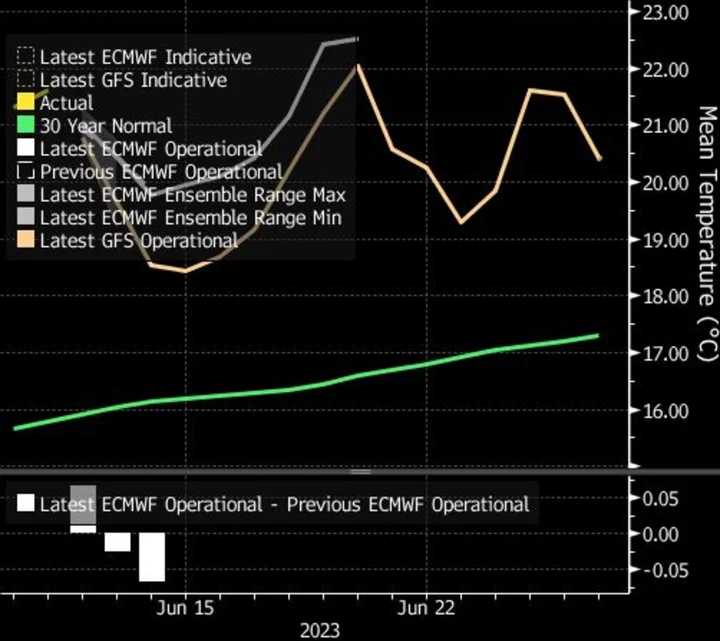A single dose of an experimental drug from Eli Lilly & Co. cut by 94% a risk factor that signals heart disease for almost a year, a first-in-human study found.
Lepodisiran, given at the highest dose, reduced a form of lipoprotein that has been linked to clogged arteries to undetectable levels for 48 weeks. The research, presented Sunday at an American Heart Association meeting in Philadelphia, raises the hope that an annual vaccine-like shot could eliminate so-called Lp(a) in people whose genes put them at high risk, said Steve Nissen, a cardiologist at the Cleveland Clinic in Ohio, who led the study.
More than 1 billion people have Lp(a) levels which put them at moderate-to-high risk of cardiovascular disease, the world’s leading cause of death. Exercise and diet do little to reduce levels, and neither do existing drugs, like Lipitor. Cholesterol carried on Lp(a) in the blood can build up on vessel walls, forming plaques that decrease blood flow to the heart, brain, and other parts of the body. These dangerous deposits can suddenly rupture, causing blockages and leading to heart attacks or strokes.
“If further trials show that this medication — lepodisiran — is safe and can reduce heart attacks and strokes, it would be good news for patients because it eliminates a risk factor we’ve been unable to treat,” Nissen said in a statement.
Lepodisiran is one of several therapeutics in development targeting Lp(a). Olpasiran, which is being developed by Amgen Inc., also showed durable effects in a mid-stage study presented in August. The medications use small interfering RNA to inhibit the production of a key protein component of Lp(a) in the liver.
In the Lilly-sponsored trial, 48 participants were randomized to receive placebo or lepodisiran at six different doses. All were given a single, sub-cutaneous injection in the tummy, apart from the highest dose of 608 milligrams, which was administered as two injections. The results were published in the Journal of the American Medical Association.
Blood levels of the medication rose quickly and returned to baseline within two days, likely because it was transported quickly out of the bloodstream and into the liver. At the highest dose, blood levels of Lp(a) declined rapidly and were undetectable by day 29, remaining unmeasurable from days 29 to 281. They then rose slightly, with a median reduction of Lp(a) levels at 94% below baseline at 48 weeks.
The study was aimed at testing the safety and tolerability of lepodisiran. A mid-stage trial underway will investigate its effects in people with both high Lp(a) levels and a high risk of early heart attack or stroke.
Lp(a) is not frequently measured because there are no treatments currently available.
“For now, if you have a strong family history of early heart disease, you should insist on having your Lp(a) measured,” Nissen said. “As these therapies become available, you can seek treatment. In the meantime, you can take steps to lower your blood pressure, treat high LDL cholesterol if you have it, eat well and do other things to protect yourself.”









